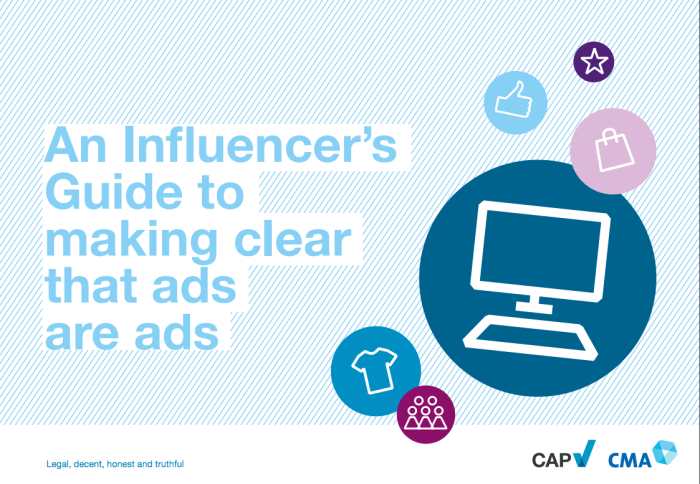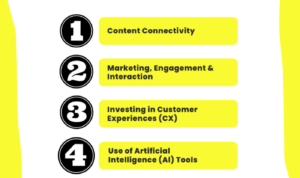Influencer Marketing Guide is your ticket to navigating the digital world like a boss. Get ready to dive into the realm of influencers, brands, and audience impact with swagger and style.
Let’s uncover the evolution of influencer marketing, the benefits it brings, and how to create killer campaigns that resonate with your target audience.
Overview of Influencer Marketing: Influencer Marketing Guide

Influencer marketing is a strategic form of marketing that focuses on using influential individuals to promote products or services to their audience. In the digital age, where social media plays a crucial role in shaping consumer behavior, influencer marketing has become a powerful tool for brands to reach their target customers.Over the years, influencer marketing has evolved from traditional celebrity endorsements to collaborations with social media personalities, bloggers, and content creators.
These influencers have a dedicated following that trusts their recommendations, making them effective brand ambassadors.
Types of Influencers and Their Impact
- Celebrity Influencers: These are traditional celebrities with a large following who endorse products.
- Macro Influencers: Social media personalities with a sizable audience reach, usually in the hundreds of thousands to millions.
- Micro Influencers: Individuals with a smaller but highly engaged following, often considered experts in niche markets.
- Nano Influencers: Everyday consumers with a modest following but high levels of authenticity and influence within their community.
Each type of influencer has a different impact on consumer behavior, with micro and nano influencers often having higher engagement rates and trust levels compared to celebrities or macro influencers. Brands can leverage these influencers to create authentic and targeted marketing campaigns that resonate with their audience.
Benefits of Influencer Marketing
Influencer marketing offers numerous advantages for brands looking to connect with their target audience in a more authentic and engaging way. By collaborating with influencers, brands can leverage their credibility and reach to boost brand awareness, drive sales, and build trust with consumers.
Increased Brand Awareness
Utilizing influencers with a large following allows brands to reach a wider audience and increase brand visibility. Through sponsored posts, product reviews, and influencer partnerships, brands can effectively introduce their products or services to potential customers who may not have been previously aware of their offerings.
Enhanced Credibility and Trust
Influencers are seen as experts in their niche and have built a loyal following that trusts their recommendations. By partnering with influencers who align with their values and target audience, brands can increase their credibility and trustworthiness among consumers. This can lead to higher conversion rates and long-term customer loyalty.
Targeted Marketing
Influencer marketing allows brands to reach a specific target audience based on the influencer’s demographics, interests, and niche. By selecting influencers whose followers match the brand’s ideal customer profile, brands can effectively target their marketing efforts and increase the likelihood of reaching and engaging with potential customers who are more likely to convert.
Success Stories
Many brands have successfully utilized influencer marketing to achieve their marketing goals. For example, fashion brand Revolve has partnered with fashion influencers to showcase their products, resulting in increased brand awareness and sales. Similarly, skincare brand Glossier has collaborated with beauty influencers to create buzz around their products and build a loyal customer base.
Finding the Right Influencers
Finding the right influencers for a brand is crucial in ensuring successful influencer marketing campaigns. It involves identifying individuals who align with the brand’s values and have an authentic connection with their audience. Here are some strategies to help you find the perfect influencers:
Identifying the Right Influencers
- Define Your Target Audience: Clearly Artikel who your target audience is to find influencers who have a similar following.
- Research Relevant Platforms: Explore social media platforms where your target audience is most active to find suitable influencers.
- Use Influencer Marketing Tools: Utilize tools like Social Blade or Upfluence to discover influencers in your niche.
Aligning Values with Brand Values
- Review Influencer’s Content: Look at the influencer’s past content to see if it aligns with your brand’s values and messaging.
- Assess Engagement: Check the influencer’s engagement rates to ensure they have an active and loyal following.
- Consider Reputation: Research the influencer’s reputation and credibility within their industry to verify their authenticity.
Verifying Authenticity and Engagement
- Look at Metrics: Analyze the influencer’s metrics such as likes, comments, and shares to gauge their engagement levels.
- Check Audience Demographics: Ensure that the influencer’s audience demographics match your target audience for better reach.
- Engage with Audience: Interact with the influencer’s audience to see firsthand the level of engagement and authenticity in their interactions.
Creating an Influencer Marketing Campaign
Creating an influencer marketing campaign involves a strategic approach to collaborating with influencers to promote products or services. It requires careful planning and execution to ensure the campaign’s success.
Key Elements of a Successful Influencer Marketing Campaign
- Identifying Clear Goals: Define the objectives of the campaign, whether it’s increasing brand awareness, driving sales, or reaching a new target audience.
- Choosing the Right Influencers: Select influencers whose values and audience align with your brand to ensure authenticity and engagement.
- Developing a Creative Concept: Create a unique and compelling campaign idea that resonates with both the influencer’s audience and your target market.
- Setting a Budget: Determine the resources available for the campaign, including influencer fees, production costs, and promotion expenses.
- Measuring Performance: Track key metrics such as reach, engagement, and conversions to evaluate the campaign’s effectiveness and optimize future strategies.
Creative Collaboration with Influencers
- Product Reviews: Have influencers create authentic reviews of your products or services, showcasing their features and benefits to their audience.
- Giveaways and Contests: Collaborate with influencers to host giveaways or contests that encourage audience participation and generate buzz around your brand.
- Branded Content: Work with influencers to develop sponsored posts, videos, or stories that seamlessly integrate your brand message in an engaging way.
- Live Events: Partner with influencers to host live events or virtual experiences that allow their followers to interact with your brand in a memorable way.
Legal and Ethical Considerations

When it comes to influencer marketing, there are important legal and ethical guidelines that influencers and brands must follow to ensure transparency and compliance with relevant laws and regulations. Let’s dive into the key considerations below.
Legal Guidelines and Regulations
- Both influencers and brands are required to comply with advertising laws and regulations set by the Federal Trade Commission (FTC).
- Disclosures must be clear and conspicuous, indicating any sponsored content or partnerships between influencers and brands.
- Failure to disclose paid partnerships can result in fines and penalties for both parties involved.
Importance of Transparency and Disclosure
- Transparency builds trust with the audience and ensures that they are aware of any financial relationships between influencers and brands.
- Disclosure helps to maintain authenticity and credibility in influencer marketing campaigns.
- Being transparent about sponsored content is not only ethical but also a legal requirement.
Ensuring Compliance with Laws and Regulations, Influencer Marketing Guide
- Both influencers and brands should familiarize themselves with the FTC guidelines on endorsements and testimonials.
- Develop clear and consistent disclosure practices to ensure compliance with legal requirements.
- Regularly review and update influencer partnership agreements to include disclosure requirements and other legal considerations.




